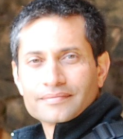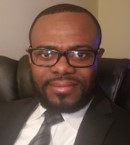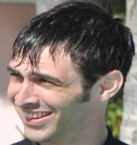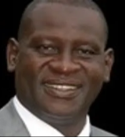Who We Are
SATCOM Global Connetivity - We bring people together
LEADERSHIP TEAM 
We are a dedicated team of subject-matter experts covering the various aspects involved in the success of our business, from the technological point of view to the commercialization both national and international.
Our technical team has the breadth and the deep insight required to bring to fruition a SATCOM technology STELLA (Satcom Technology of Elaborate Luneburg Lens Antenna) that not only outperform existing technology but also is cost effective to enable a global connectivity. Global connectivity had been hindered so far by outdated technology and high SATCOM cost of equipment development. Google Inc., OneWeb with Airbus Aerospace, Amazon, Facebook, etc. had either failed or reeling to achieve the promised global connectivity.
The experimental Starlink internet public Beta from SpaceX offered in 2020 a glimpse of the efficacy, high performance and superior connectivity of LEO-Satcom. Starlink has provided (November 2nd 2020) up to 174 Mbps, a download speed faster than 95% of US connections. US Air Tech's STELLA technology will dramatically and substantially increase the bandwidth and speed bitrate (up to 1000 fold), enhance and strengthen the service reliabilty and mitigate the intermittent outage issues.
The new approach and novel concept behind our SATCOM antenna and receiver adequately resolve both the technological problem and the cost barrier issue. Please meet now the team that is committed to achieve the long sought Global Connectivity.
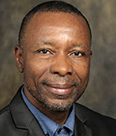
Dr. Patrick Gbele
Founder and CEO
Dr. Gbele graduated from the University of Arizona with a PhD degree in Electrical & Computer Engineering (ECE) and completed his Postdoctoral at The College of Optics and Photonics UCF - CREOL (University of Central Florida - Center for Research and Education in Optics and Lasers). The field of study during his doctoral and postdoctoral programs was in Optical Sciences and his Master degree program was in Microwave Engineering.
Dr. Gbele won in 2019 a DoD-SBIR (Department of Defense - Small Business Innovation Research) Phase-I contract with the US Army and was selected twice (2018 and 2019) during the first 2 competitions of the US Army Expeditionary Technology Search - xTechSearch - launched in 2018. He won in 2020 the US Government National Science Foundation (NSF) Phase-I award for his STELLA invention (STELLA: Satcom Technology of Elaborate Luneburg Lens Antenna).
He has a joint patent with the University of Arizona on semiconductor laser source VECSEL device (Vertical External Cavity Surface Emitting Laser) in the optical NIR -Near Infrared- frequency regime, and has pending patents on his inventions. He has published peer-reviewed papers and conference papers and possesses a strong background in electrical and optical research.
Dr. Gbele has a demonstrated ability and skills on semiconductor laser source development that include both types of VECSEL and VCSEL (VECSEL and Vertical Cavity Surface Emitting Laser).
He was part of the team at the University of Arizona who invented in 2012 the development of a Luneburg lens antenna at X-band, using a rapid prototyping 3D printing technique. He, subsequently, was the first to design and fabricate the same lens antenna in Q-band frequency in late 2012. He has hands-on experience in Microwave Antennas design and fabrication, Microwave passive and active circuit components design and fabrication such as PA (Power Amplifier), LNA (Low Noise Amplifier), microwave circuit boards, resonators, circulators, attenuators and an extensive experience in cleanroom nano-structure development.
Dr. Gbele held several senior positions that include the role of PI - Principal Investigator - and Chief Scientist, responsible for the R&D (Research and Development) involving both Government and commercial contracts. Among other duties, Dr. Gbele held Adjunct Professor position teaching Mathematics. He is the Founder and the Chief Executive Officer of US Air Tech LLC DBA USAT.
Education
Ph.D., Electrical Engineering, The University of Arizona, AZ, year: 2016.
M.S., Electrical Engineering, The University of Arizona, AZ, year: 2014.
B.S., Electrical Engineering, The University of Arizona, AZ, year: 2005.
B.S., Computer Engineering, The University of Arizona, AZ, year: 2005.


